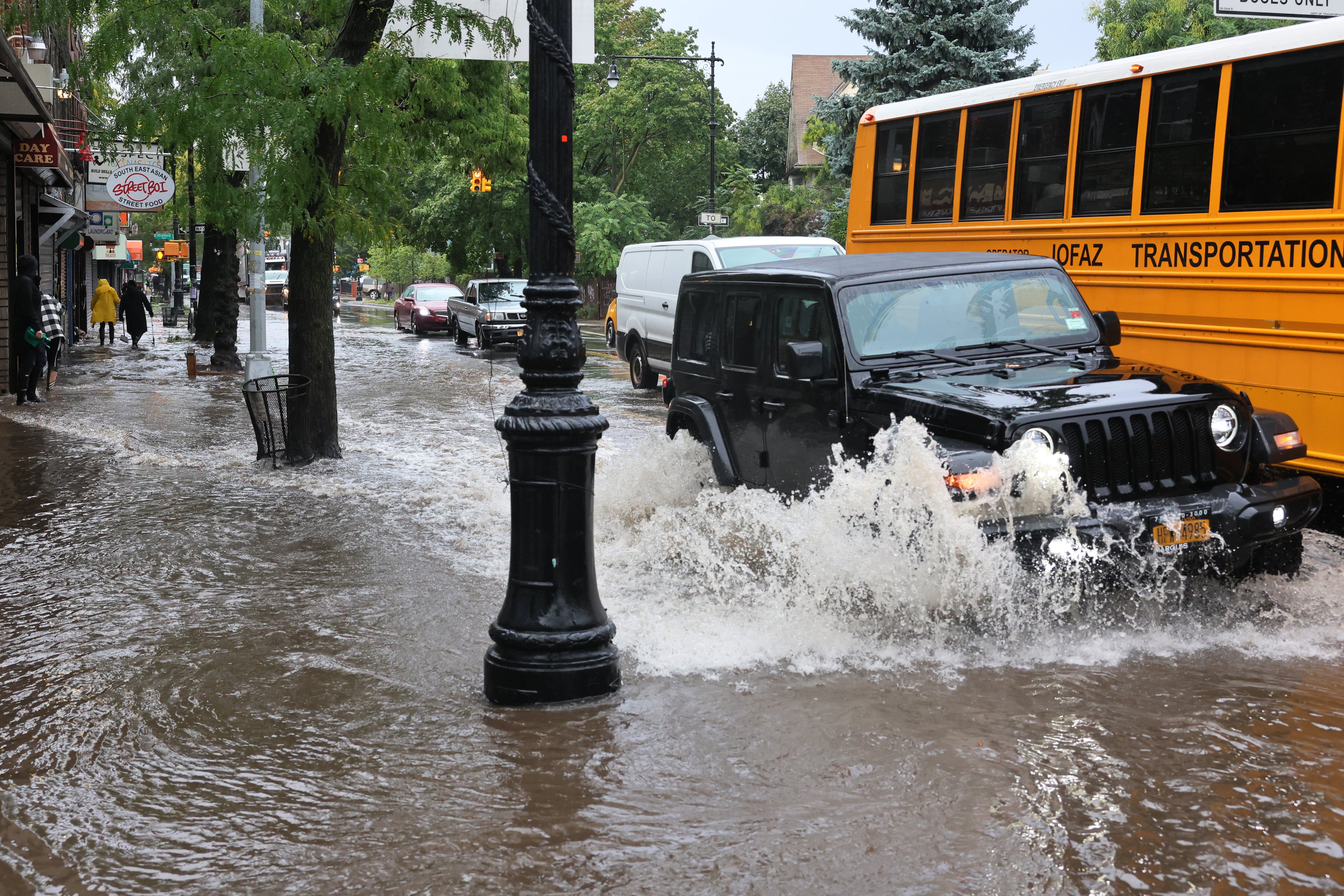Sign up for Chalkbeat New York’s free daily newsletter to keep up with NYC’s public schools.
About 560 New York City public schools were affected by torrential rainfall last September, far more than previously known, according to a report released this week by the city comptroller.
As Tropical Storm Ophelia pelted some parts of the city with more than 8 inches of rain, public school buildings contended with leaky roofs and flooded basements, cafeterias, and classrooms. One Brooklyn elementary school was evacuated thanks to a smoking boiler.
On the day of the storm, Education Department officials said about 150 schools experienced flooding. That number grew to 336 campuses in the days after the storm, as school staff continued to flag problems. The new report, released by Comptroller Brad Lander, cites city data that indicates 560 schools were affected by the heavy rain in some capacity.
About 350 of those school buildings — or roughly a quarter of all campuses — required cleanup or repairs outside the regular school day, said Education Department spokesperson Jenna Lyle. The remaining buildings faced problems that were minor, such as open windows that allowed rain to seep in and could be addressed by mopping, she added.
After the Friday storm, “over 95% of all clean up and repairs were completed by the following Monday and all buildings were able to open,” Lyle wrote in a statement. The department did not respond to a question about the cost of the cleanup and repairs.
The comptroller’s report dinged the city’s lackluster communication about the storm, including at the Education Department. The school system did not communicate with families effectively in advance of the storm and “parents were confused about whether school would be in session that day,” the report found. It also noted that guidance about dismissal procedures and after-school activities was posted on the department’s website around 2:30 p.m., after many schools had already let out.
City officials also sent mixed signals to school leaders. At a press conference hours after the school day began, Mayor Eric Adams and Chancellor David Banks said schools were operating under a “shelter in place” order. But as Chalkbeat previously reported, that message was never directly sent to school principals. Banks later acknowledged flaws in his agency’s communication that day.
“Schools, like the rest of the City, must do the work to be more prepared for extreme storms, which are increasing in both frequency and intensity,” Lander said in a statement. “The Department of Education must do better in directly notifying our families before the next weather emergency hits.”
Lyle, the Education Department spokesperson, said the school system has “worked to continually improve our communications to staff and families” pointing to the city’s response to a recent earthquake.
“The safety and wellbeing of our students and staff, particularly during a crisis, is our top priority,” she wrote.
Alex Zimmerman is a reporter for Chalkbeat New York, covering NYC public schools. Contact Alex at azimmerman@chalkbeat.org.






